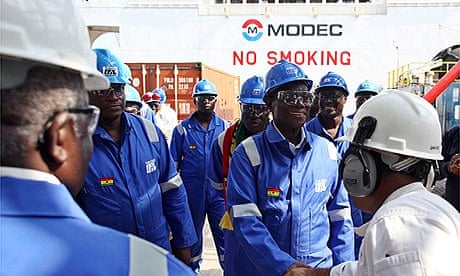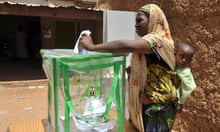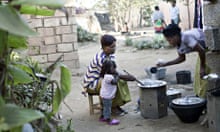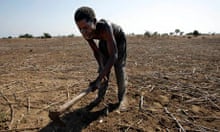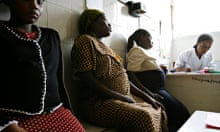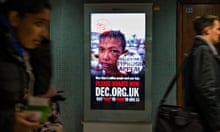The UK aid watchdog has praised the British government's efforts to support people in poor countries to push for better public services, but warns that it must be clearer about its goals and more strategic in its allocation of money.
The Independent Commission for Aid Impact (Icai) examined UK aid-funded projects in Ghana and Malawi, worth more than £40m, including those designed to help communities play a greater role in how their local schools are run, and better monitor the oil and gas industry in Ghana. In its report, published on Friday, the watchdog said it endorsed efforts by the UK Department for International Development (DfID) in this area, but that improvements should be made to better maximise results.
"Empowering people is a necessary part of the development process. More empowered communities being able to interact more effectively with government is, in our view, a precondition for the achievement of many development goals," says the report, which gave the programmes examined an overall green-amber rating, meaning they perform relatively well, but some improvements are needed.
The report says DfID needs a clearer and more realistic set of goals, and stronger criteria to decide how to achieve them, to improve its work in this area, and cautions that pressure to lower management costs have resulted in a scattered portfolio of small-scale projects that are "very difficult to mesh into a strategic whole".
"Small pilot initiatives in a few communities are clearly not sufficient. Interaction with communities needs to become a regular part of the way government operates. DfID, therefore, needs to find ways to implement successful approaches on a larger scale," it says.
Icai notes that DfID's empowerment and accountability portfolio is extremely broad, with projects ranging from those focused on improving services to those aiming to influence government decisions and change the very nature of the political system itself.
Though DfID efforts to improve citizen engagement with local service delivery have had some success, Icai said the department's support for civil society advocacy at the national level had produced more limited results.
"DfID's more ambitious goals to promote accountability through social and political change appeared to be unrealistic," the report says. The department must adopt clearer objectives and ensure these are "more realistic and more specific to each country context". it adds.
In some cases, the watchdog says it found that DfID had sacrificed the quality of its engagement to push through large-scale campaigns.
"In this area, lower-volume, high-quality support is likely to be more effective," it says. "Rather than trying to push more CSOs [civil society organisations] into advocacy roles, DfID should focus on a limited number of the most promising candidates and support them to campaign on key national development issues with a high political salience. It should enter into longer-term partnerships, offering support that is more flexible and tailored to individual needs."
More broadly, the report says focusing on policymaking is not always enough. It gives the example of Ghana, which it says has many progressive laws and policies, but a weak record on implementing them. "Promoting constructive community engagement with implementation processes may be one of the most direct routes to improved development outcomes," it says.
Icai said it was surprised to discover that DfID's accountabilility programmes in Ghana and Malawi were not linked to its wider efforts in areas such as health and education. "Many development challenges, such as improving teacher attendance or the delivery of drugs to local health centres, need concerted action from both government and communities," it says, calling for better linkages across DfID projects.
DfID has pledged to support 40 million people to have more control over their own development and hold their governments to account, by 2015. It funds empowerment and accountability programmes in 12 African and five Asian countries.
Responding to the report, a DfID spokesman said: "As this report makes clear, Britain's work to empower citizens and boost accountability across the developing world is producing real results … We are committed to giving people a stronger voice so they can influence their own countries.'
Icai's report precedes the Open Government Partnership annual summit in London this month. The OGP, which the UK chairs this year, is an international effort to secure concrete commitments from governments to promote transparency, empower citizens, fight corruption and harness new technologies to strengthen governance.
